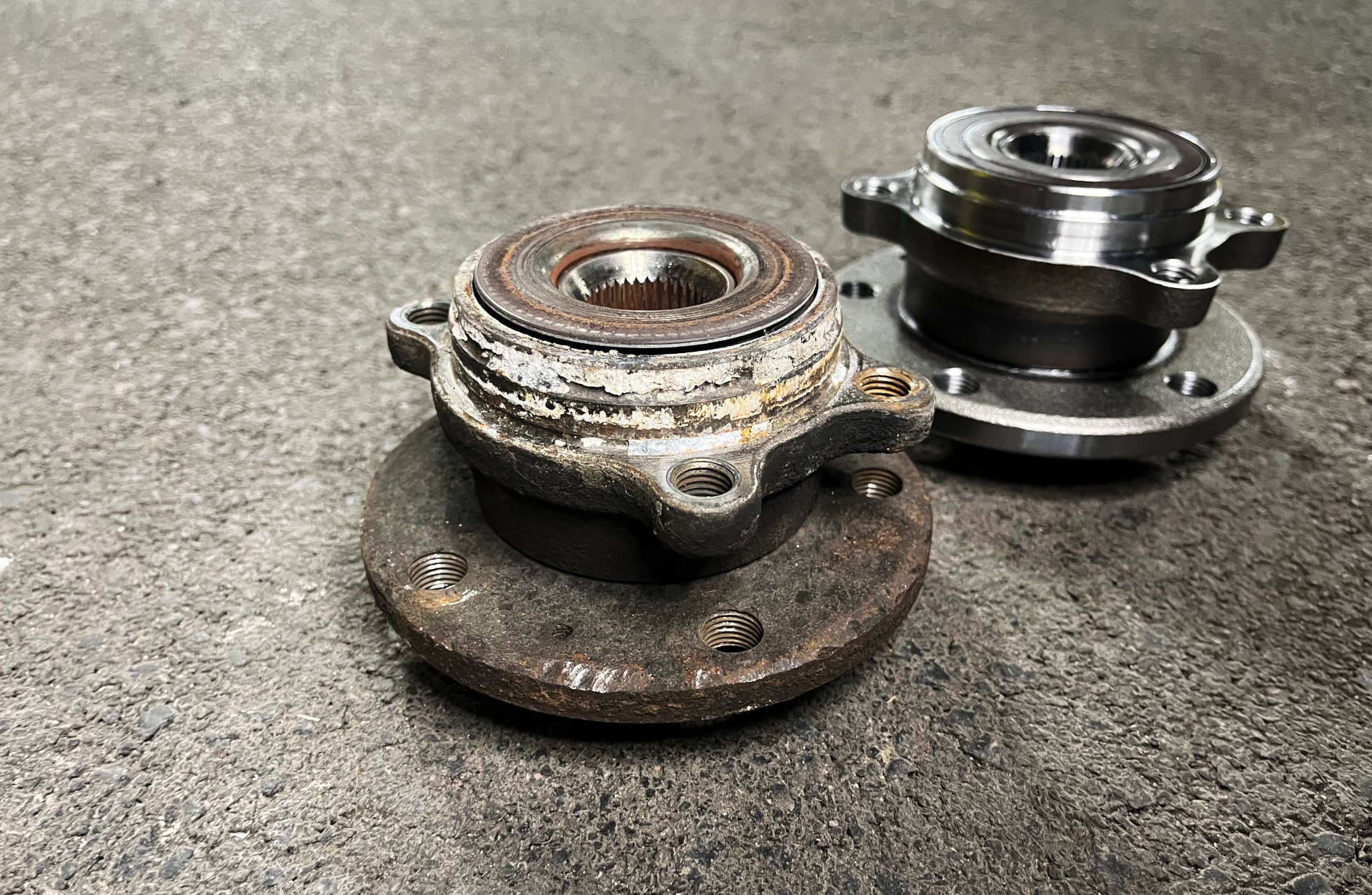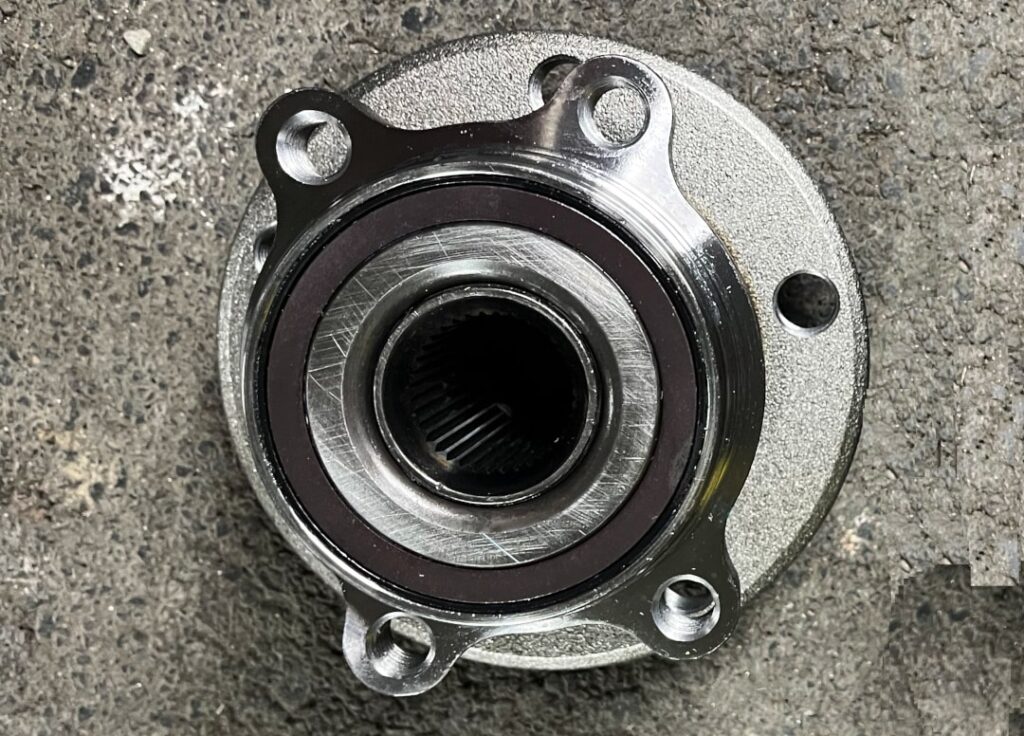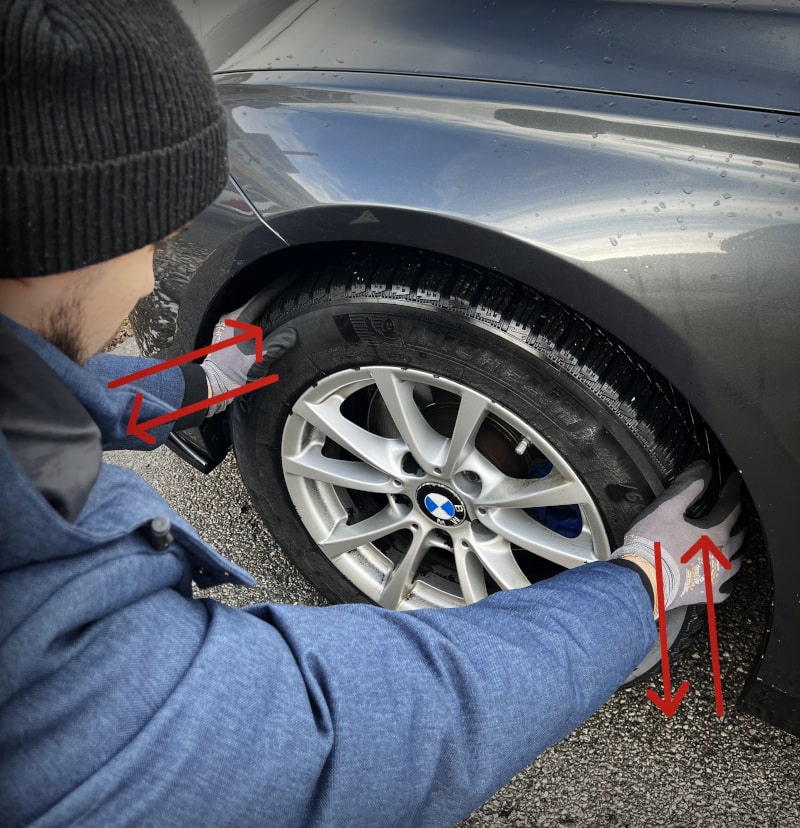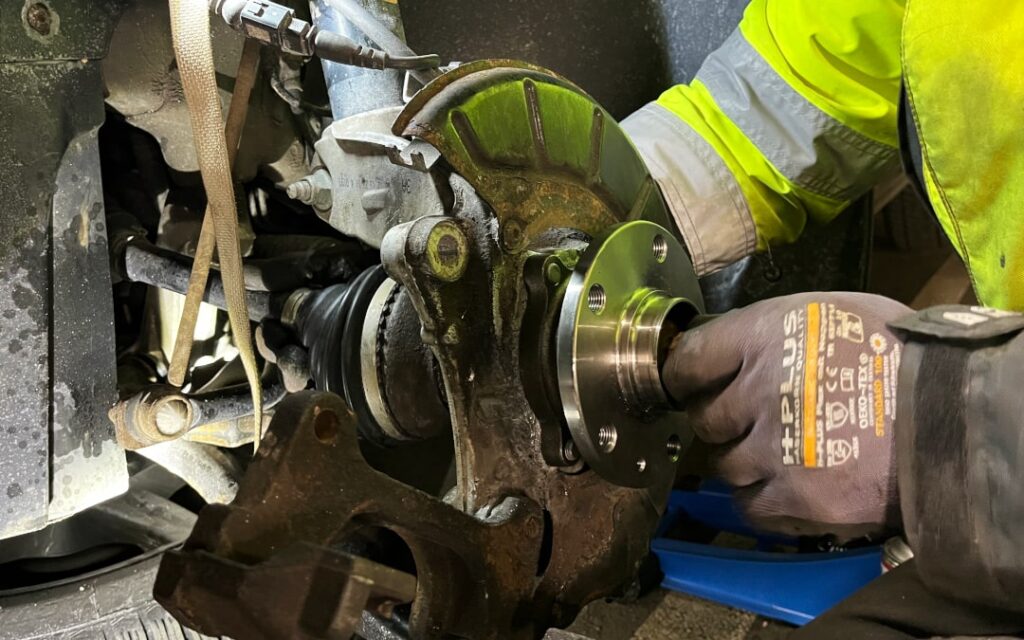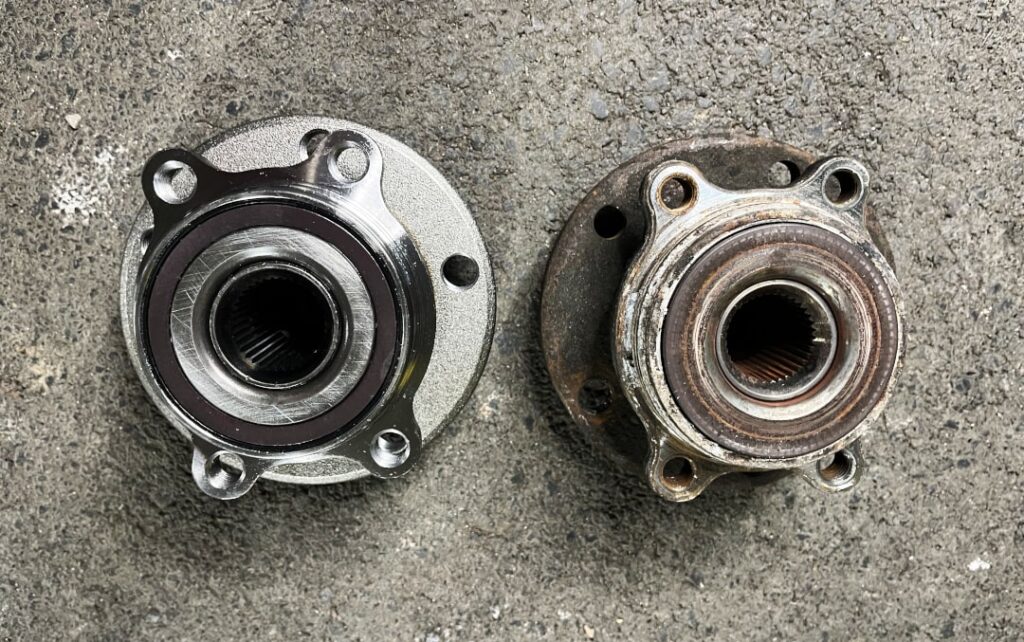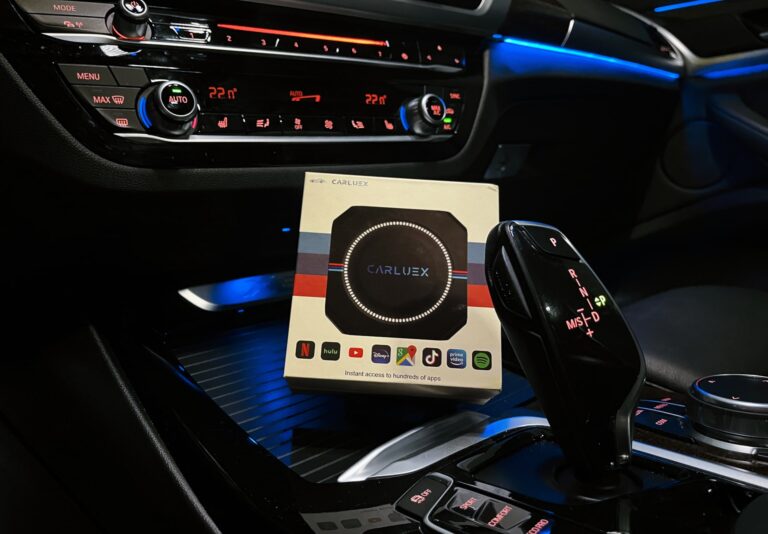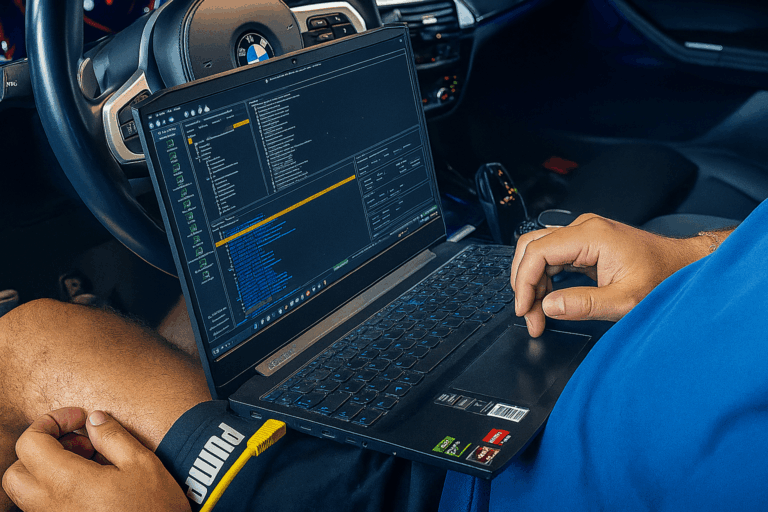What is a wheel bearing and what is its purpose?
The wheel bearing is a key component of the chassis that forms the connection between the wheel and the axle. It enables the smooth rotation of the wheels while supporting the full weight of the vehicle at the respective axle. The primary function of the wheel bearing is to absorb the forces acting on it without interference.
Modern vehicles often use ball bearings or tapered roller bearings, which consist of rolling elements, a cage, as well as inner and outer rings. Some wheel bearings are also equipped with magnetic impulse generators that provide signals for systems like ABS and ESP. These special wheel bearings replace the use of ABS sensors.
Symptoms of a faulty wheel bearing
Causes of a faulty Wheel Bearing
Costs for Wheel Bearing Replacement
Is it possible to replace a faulty Wheel Bearing yourself?
Yes, replacing the wheel bearing is one of the repairs that can be carried out at home without major issues. As long as no bolts are seized or too rusted, the replacement is quite straightforward.
The repair is especially easy if you have ordered a complete bearing including wheel hub, which definitely pays off. In this case, you don’t need special tools like a hydraulic press, but simply replace the entire wheel bearing with the hub.
Even without a lift, it works with a jack and stands. Want to know exactly how? In the article: “How to Replace Wheel Bearings Yourself – Guide for VW Passat B7”, we show you step by step how to replace the front wheel bearing on a 2014 Passat B7 yourself!
Please note that improper installation can lead to further damage. If you are unsure and symptoms occur, have the replacement performed at a professional workshop.
Conclusion: How serious is a faulty wheel bearing?
A faulty wheel bearing poses a significant safety risk over time. The wheel itself experiences increased resistance due to a damaged wheel bearing, which in turn leads to high temperatures. This heat can cause the grease in the wheel bearing to burn off, completely eliminating its lubricating ability. This can then lead to severe loss of vehicle control or even to the wheel locking up.
In very rare cases, the entire wheel can be destroyed and detached from the suspension, or even catch fire. However, these cases occur very rarely.
In summary, if you notice symptoms indicating a faulty wheel bearing, don’t hesitate and plan the repair. While you have no immediate pressure, as the wheel bearing can endure quite a lot, you shouldn’t delay the repair for too long.
More Articles
BMW Android Auto & Carplay retrofit | Plug & Play | CARLUEX
BMW Android Auto & Carplay retrofitCARLUEX Experience Are you driving a BMW built before 2020 and want to finally use Android Auto?...
BMW Sport Plus coding: Unlocking driving mode - instructions
BMW Sport & Comfort Plus codingUnlocking driving mode - BMW coding made easy - In this guide you will learn step by step how to...
BMW coding software comparison 2025 | ESys, BimmerCode & Co
BMW Coding Software ComparisonESys, BimmerCode & Co. There are now countless tools for coding a BMW. Different software providers offer...

